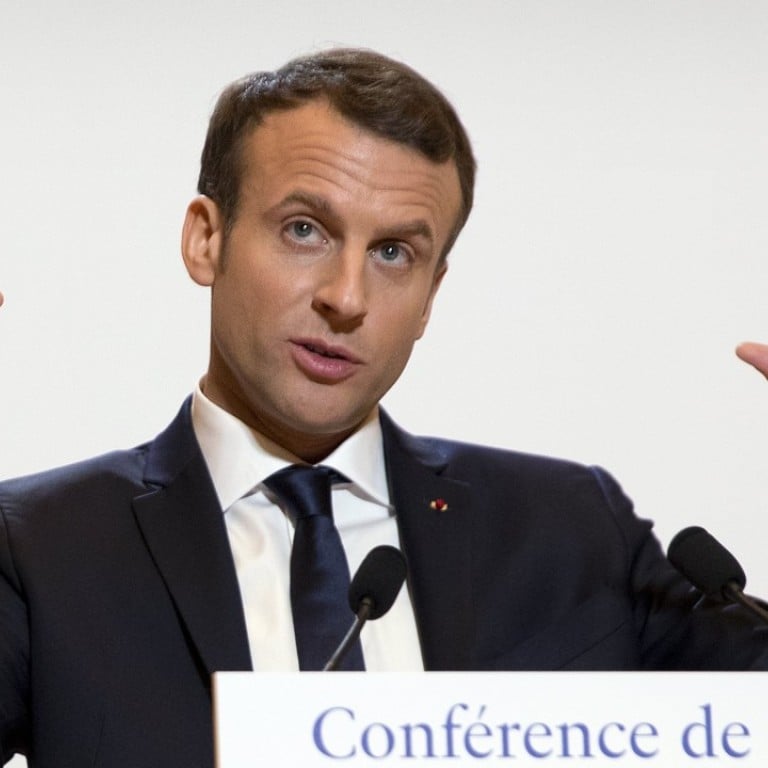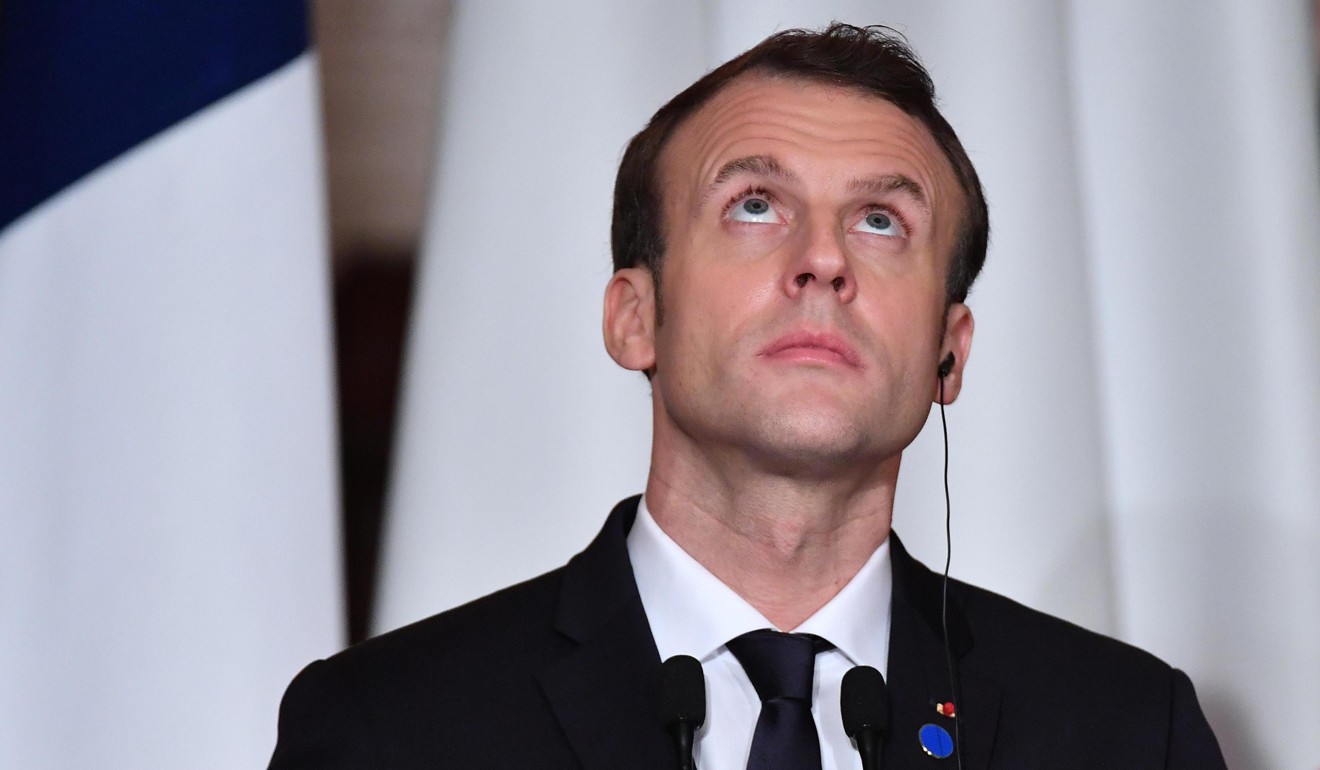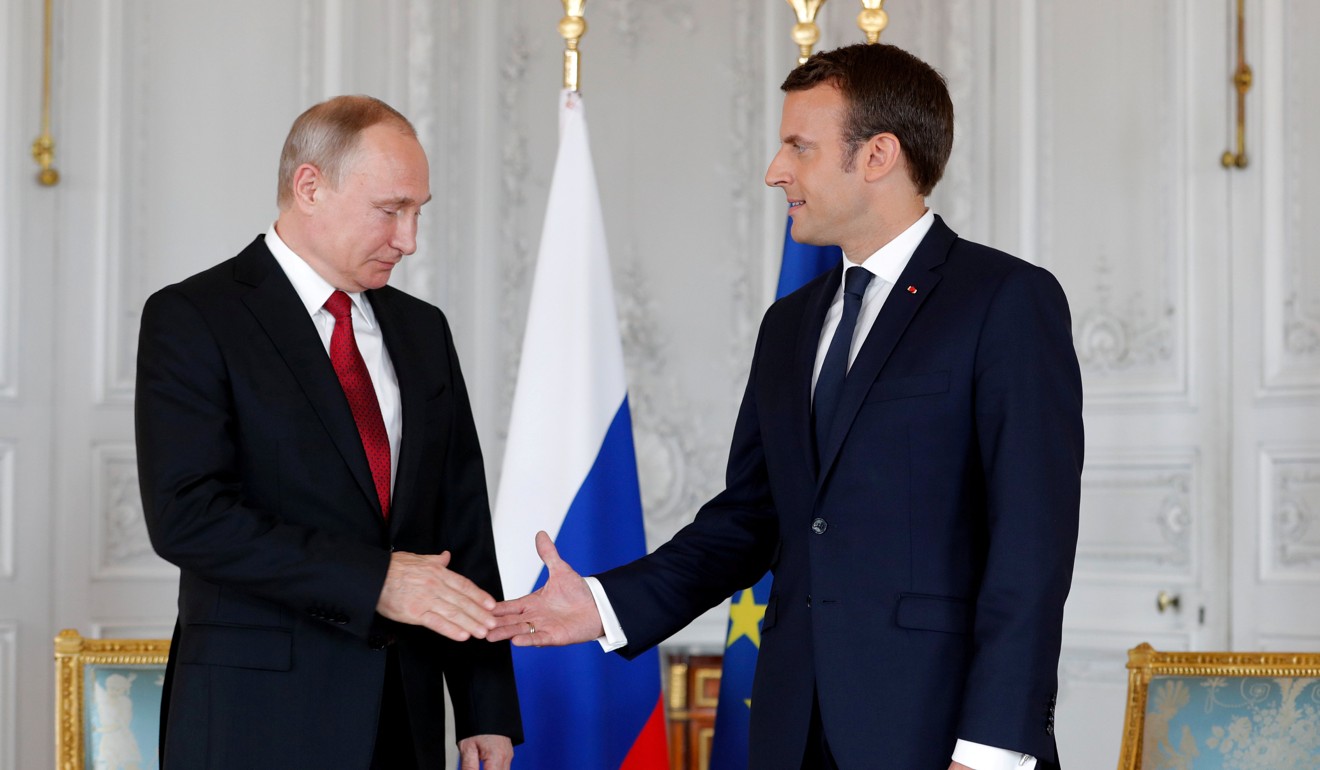
France considers law to rein in ‘fake news’, raising fears for freedom of speech
‘The first question is: What is fake news? Who will define it’
French President Emmanuel Macron is preparing to introduce a law against “fake news” by the end of 2018. But critics are voicing concerns over what they see as potential infringement on the freedom of expression.
Macron’s proposal, announced last week, would add France to a growing list of European countries that have taken official action against disinformation online. A similar German law went into effect January 1, and the Czech Republic established an anti-fake-news task force a year ago.

“Thousands of propaganda accounts on social networks are spreading all over the world, in all languages, lies invented to tarnish political officials, personalities, public figures, journalists,” Macron told journalists last week.
Thousands of propaganda accounts on social networks are spreading all over the world, in all languages, lies invented to tarnish political officials, personalities, public figures, journalists
“We are going to develop our legal means of protecting democracy against fake news.”
Sceptics quickly pounced. “The first question is: What is fake news? Who will define it?” said Daniel Schneidermann, a media columnist for the French newspaper Libération and the director of “Arrêt sur Images” (Freeze Frame), a leading online venue for media criticism in France.
“Fake news” has been an issue for Macron since France’s 2017 presidential election, when numerous false reports claimed that he benefited from offshore accounts – stories that his far-right opponent, Marine Le Pen, regularly referenced. His campaign was also targeted in a major data breach on the last day of the contest, when thousands of emails and internal communications were dumped into the public domain before voters went to the polls.
By all accounts, his principal targets seem to be Russian state-owned media organisations, such as Sputnik and RT, formerly known as Russia Today. Both have French-language websites, and RT began broadcasting in France in late December.

“RT France journalists had already faced extreme difficulties and discrimination in doing their jobs, which included unfounded denial of access to En Marche HQ and the Élysée Palace,” wrote Xenia Fedorova, chief executive of RT France, in an emailed statement. She referred to the headquarters of Macron’s political party and the French presidential palace.
“Yet, recent comments by President Macron suggest that we are only at the beginning of curtailing of press freedoms in France – one that begins with an apparent attack against the ‘alternative’ media but may end up in persecution of all dissent, censorship and suppression of the freedom of speech for all,” Fedorova added.
RT has also been the target of the crackdown in the United States, where its English-language channel was required last year to register as an agent of the Russian government in retaliation for allegedly publishing anti-American propaganda. RT’s accreditation to cover Congress was subsequently revoked.
Most French journalists are loath to defend RT, and many share Macron’s suspicions about the motives of organisations financed by the Kremlin. But some worry that a new regulatory law would be ineffective in fighting disinformation and would establish a risky precedent.
In an editorial, Le Monde, France’s leading newspaper, said the law, “on a subject as crucial as the freedom of the press, is by nature dangerous.”
For some, even a well-intentioned law that could be seen as limiting the freedom of expression for political ends would present a dangerous precedent in a European Union where rightist and nativist movements are on the rise.
“I’m very afraid of the bad effects that a law that has good intentions in France can have in other countries,” said Frédéric Martel, a writer and broadcast journalist on France Culture, a French radio programme.
“Macron is the president of France, and I believe that he’s somebody in favour of freedom of expression. But we are in Europe, and we have people in Hungary and Poland looking at France,” he said. “And if the French president attempts to regulate content, our model will be taken as an example for them, and they can just say they’re doing what the French are doing. And of course they will do that with different intentions.”

